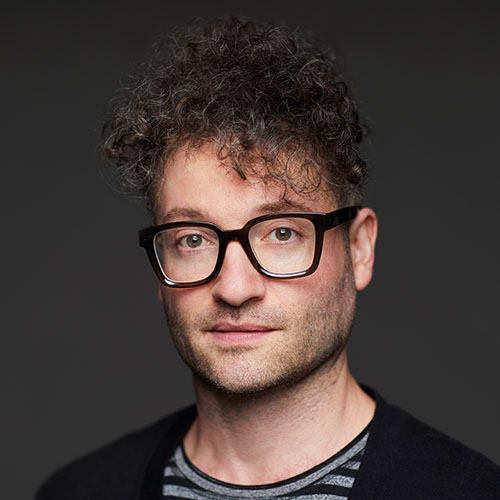Keynote
Neural Economics
Saturday, October 4, 2025 16:00-17:00

Drazen Prelec
MIT Sloan School of Management, MIT Department of Brain and Cognitive Sciences, MIT Department of Economics
Drazen Prelec has been a member of the Sloan faculty since 1991, with joint appointments in the MIT Departments of Economics, and Brain and Cognitive Sciences. He received his Ph. D in Experimental Psychology and AB in Applied Mathematics from Harvard University. He became involved with behavioral economics as a Junior Fellow in the Harvard Society of Fellows, and has pursued this interest with fellowships from the Russell Sage Foundation, Stanford CASBS, the Guggenheim Foundation, the Princeton Institute for Advanced Study, and, most recently, All Souls College, Oxford. His current work focuses on non-verifiable subjective judgments (‘crowd wisdom’), and the application of mechanism design to neuroscience (‘neural economics’). He remains interested in the limitations of rational models for human agency, especially in connection with non-causal motivation and self-signaling.
Abstract
Neural Economics
Can Bayesian game theory provide a model for the brain? I will address this question through the lens of the Bayesian truth serum (BTS), a mechanism that provides incentives for honest reporting of private information by individuals, when neither honesty nor ground-truth accuracy can be independently verified. The main part of my talk will present these results in their original application setting — crowd wisdom and collective intelligence. However, similar problems of reporting and aggregating information appear at the level of unsupervised neural networks, that is, when individual neural units have to train themselves without external ground-truth reinforcement. I will outline a principal-agent economic model of neural networks, with neurons designated as the principals, sending messages to their synaptic agents. Information-theoretic utility functions and excitation-inhibition balance emerge as two key properties of well behaved `neural economies.’ This approach invites a broader inversion of the Neuroeconomics paradigm: Rather than using neural models to understand economic behavior, we can ask how economic theory, especially Bayesian games, might help us understand the internal logic of neural networks themselves.
Workshop
NeuroScience
Friday, October 3, 2025 09:00 – 10:00am

Amber L. Alhadeff
Monell Chemical Senses Center & Department of Neuroscience, University of Pennsylvania
Amber Alhadeff is an Associate Professor at the Monell Chemical Senses Center and Department of Neuroscience at Penn, where her lab investigates gut-brain communication. The Alhadeff lab employs a combination of modern neuroscience tools – with a focus on in vivo approaches – to understand the neural circuits underlying feeding behavior, and how they relate to diseases such as obesity.
Abstract
Neural control of hunger and satiety
We eat every day, and although we may not realize it, this process is tightly controlled by neural communication between the gut and the brain. This presentation will explore the neural mechanisms for hunger and satiety, and how new weight loss medications leverage these brain circuits to help manage food intake in an environment replete with palatable, energy-dense foods.
Workshop
Social & Decision Sciences
Friday, October 3, 2025 10:00 – 11:00am

Alex Imas
Booth School of Business, University of Chicago
Alex Imas studies behavioral economics with a focus on cognition and mental representation in dynamic decision-making. His research explores topics related to choice under uncertainty, applied AI, discrimination, and how people learn from information. Professor Imas’ work utilizes a variety of methods, including lab experiments, field experiments, analysis of observational data and theoretical modeling.
Alex Imas is the recipient of the 2023 Alfred P. Sloan Research Fellowship, the Review of Financial Studies Rising Scholar Award, the New Investigator Award from the Behavioral Science and Policy Association, the Hillel Einhorn New Investigator Award from the Society of Judgment and Decision Making, the Distinguished CESifo Affiliate Award, and the NSF Graduate Research Fellowship.
Abstract
Recovering Preferences under Cognitive Constraints: The Role of Mental Representations
Lunch Panel Session 1
Friday, October 3, 2025 12:45–13:45
How Has Neuroeconomics Influenced Its Root Disciplines?
This panel explores how neuroeconomics has shaped its parent disciplines—economics, psychology, neuroscience, and marketing—and what future directions could help grow the field. Topics will include its impact on economic theory, experimental methods, neuromarketing and neuroforecasting, and its integration into broader psychological and neuroscience research. The discussion will highlight both past contributions and emerging opportunities for the field’s continued development.
- Cendri Hutcherson, University of Toronto
- Catherine Hartley, New York University
- Alex Genevsky, Erasmus University
- Ryan Oprea, University of California, Berkeley
Moderator: Anita Tusche, Queen’s University
Lunch Panel Session 2
Saturday, October 4, 2025 11:45-12:45
AI in Neuroeconomics
This panel examines the growing role of artificial intelligence in neuroeconomics. Topics will include the use of AI as a substitute for human participants (and even researchers for certain tasks), ethical considerations, opportunities for advancing research and training (e.g., grant writing, data analysis, programming, editing), and challenges for equity and access in science. Panelists will discuss both the benefits and risks of integrating AI into the field, and what this means for the future of neuroeconomic research.
- Evangelia Chalioti, Yale University
- Sonia Murthy, Harvard University
- Tor Wager, Dartmouth College
Moderator: Erie Boorman, University of California, Davis
